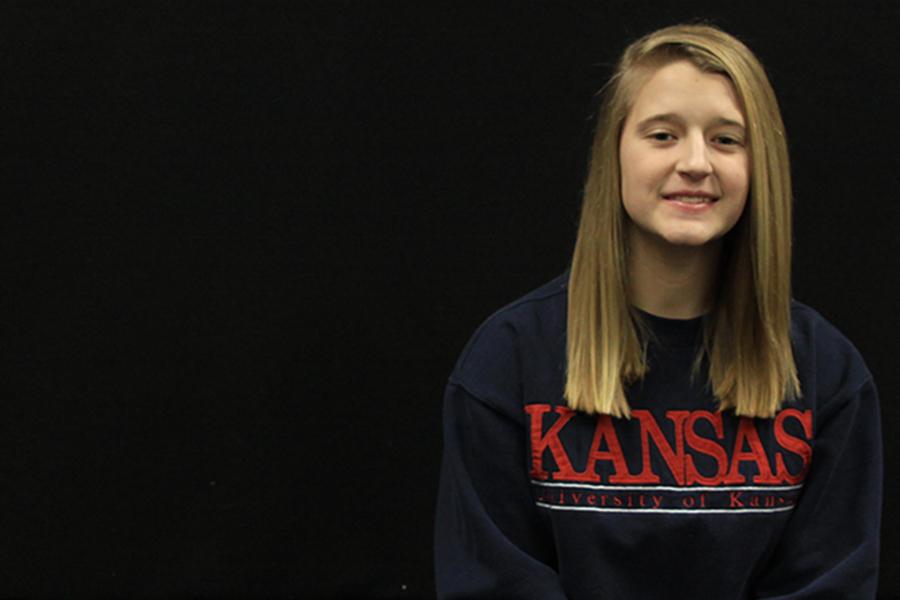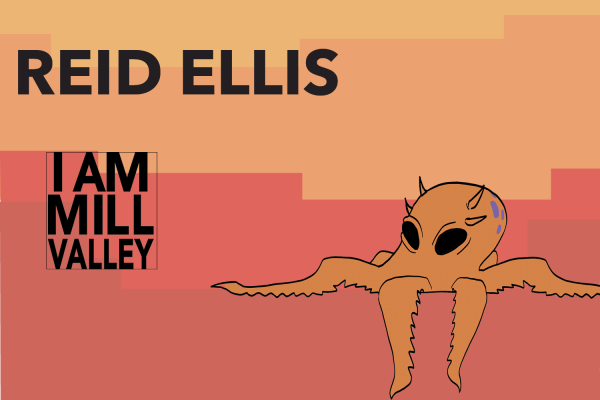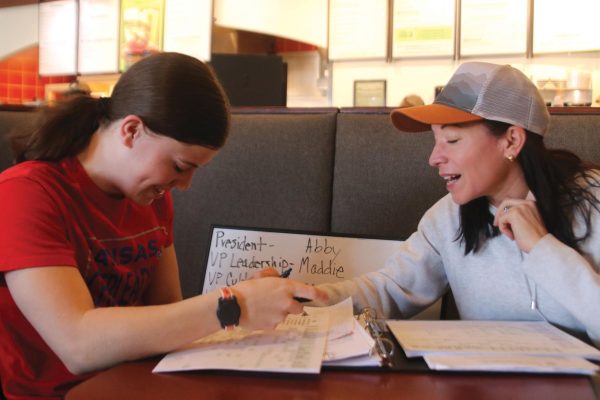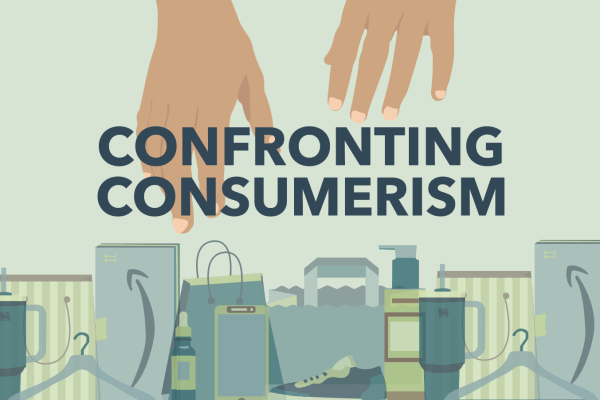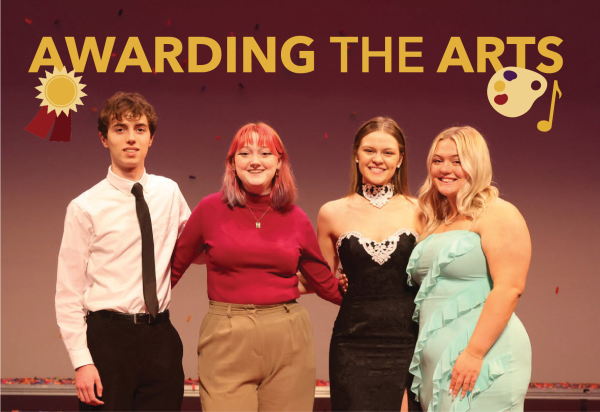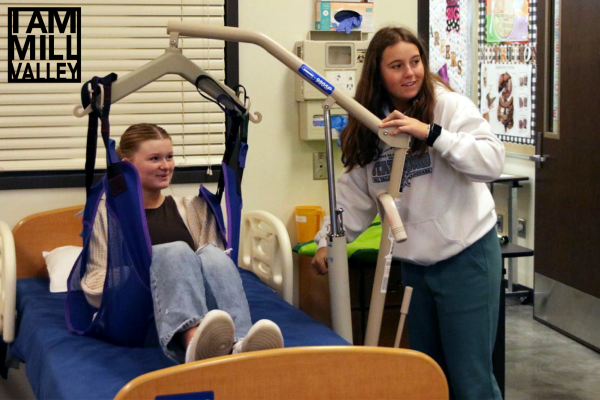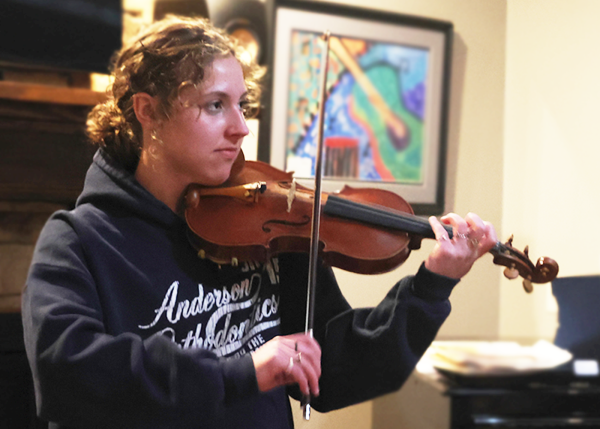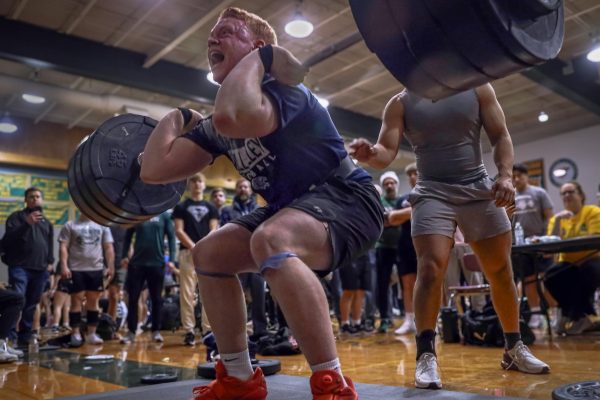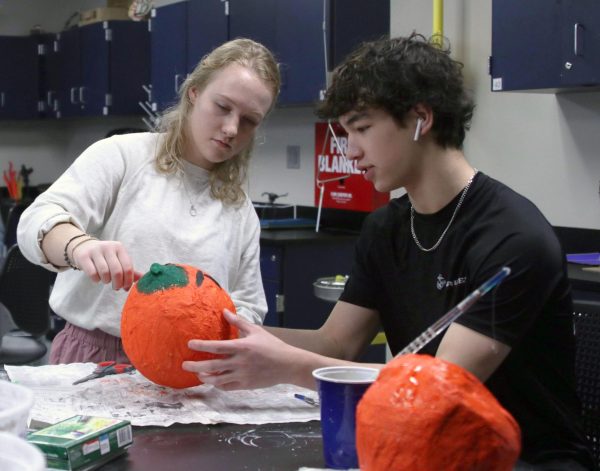Q&A with sophomore Whitney Epps
Sophomore Whitney Epps experiences brain surgery
What is a lesion?
It is a cavernous hemangioma, which is like a tumor.
How did you find out you had a lesion on your brain?
We found out by getting an MRI [Magnetic Resonance Image], but we didn’t actually get the MRI first, which we should have. We got two week-long EEGs [electroencephalograms] first until [the doctors] said we needed an MRI. We got it, and found [the lesion] was there.
Can you describe an EEG?
It’s a test where they monitor you in a room for a week, if you do a week-long EEG. They put electrodes on certain parts of your head depending on where your brain nerves are. They wanted to know if I had seizures. I knew I was having them, but [the doctors] wanted to know for sure. I was basically locked in a room for a week.
How long did you have the lesion before it was removed?
We’ve known for three years, but I’ve had it since I was born. It was just too small to detect when I was a baby.
What kind of tests did you go through before surgery?
I had so many MRIs, I don’t even know how many. I had an fMRI [functional Magnetic Resonance Image], which I had to get my braces off for because of the metal. fMRI is where you get to talk during the MRI and push buttons so the doctors can figure out where your speech area is. You also talk to the [technicians], and you answer questions and read stories off of the screen to detect your speech area.
What symptoms was the lesion causing?
At first we thought it was Tourette’s syndrome, but it wasn’t. It was causing seizures on the right side of my face. [The seizures] were tongue twitching and squinting of the eye, and [my] breathing pattern [would change]. As the years and the months went on, it progressed to my arms and legs. Then it progressed to me hearing sounds, and it changed my breathing. I couldn’t get up to walk. If I got up, I would fall. My strength was low after seizures.
What was life like having seizures?
It was stressful. If I didn’t take my meds, I was scared because I would have to watch out for auras, which are mini-seizures. It just feels like I’m going to have a seizure because my tongue would twitch, and it felt like a magnet was pulling it to the right side of my face. [When] living life with seizures, you’d have to find the right medication to stop the seizures and stop the auras. My medication didn’t stop the auras; it just stopped the seizures so we progressed with surgery. It could be life threatening in the future [if it wasn’t removed].
How often were you having seizures and auras?
Without the medicine, I was having seizures a couple of times a week. With the medicine, I was not having seizures unless I maybe forgot a dose of my nighttime meds, which I only did in the beginning when I started. Now I never forget a dose. My last seizure was in April 2013.
What elements of your life changed with the lesion and the seizures?
Now I can grow up not having to live with seizures. I’m still taking the meds right now, but I won’t have to take those meds later on after a couple of years. It sounds like a long time, but thinking about how long I don’t have to take the meds [is more important].
What is the purpose of your epilepsy necklace?
If I have a seizure and the ambulance has to come and get me and they don’t know what’s going on, they will look first to see if I have medical identification. I have a necklace that shows them that I have epilepsy. And then they’ll know what to do from there.
How did you initially feel about getting an epilepsy necklace?
I had to wear it all the time and sometimes I would forget, but I had bracelets too. I would have to wear it to the pool, and I couldn’t go to the pool without someone who knew what was wrong. At first, I couldn’t go to the pool without a parent because my mom was scared I would have a seizure there. I understand why it would be scary for her.
What were you most concerned about going into surgery?
I was concerned about the risks because the lesion was right in between my motor strip and my speech area, and they had to wake me up during surgery. They put me down and then woke me up in the middle so I could talk. [The doctors] didn’t know what would happen. They thought for sure that even if they woke me up during surgery that I would have a speech deficit, but I didn’t.
How did you prepare for surgery?
We took it day by day. During something like [brain surgery], you need to talk to someone. I would talk to my mom and my dad. I’d even talk to my little brothers. I would talk to them and they would tell me it was going to be OK. My mom was a big part of everything. She took care of not just me, but everyone in my family. I don’t know how she did it.
What was it like being awake during brain surgery?
I woke up and the doctors made me count to 10 and stuff like that. I counted backwards, too. I asked this nurse there to hold my hand so I wouldn’t be scared. I didn’t want to be alone, and I didn’t want to be scared. I wanted to be strong. I needed to be strong. I could not freak out, and I wasn’t going to. I prepared myself for it. They needed to get [the lesion] out, and I decided I was not living with this thing in my head. Even when they didn’t ask me to count to 10 [when I was awake and the doctor was operating] I was still talking to the nurse.
How has coming back to school been?
It’s been hard; I’m tired all the time. Band has a lot of moving around, and I play the cymbals, so I’m crashing them and standing up the whole time. I’m exhausted after school and after band. A lot of times I just want to go home and nap, but I don’t want to miss school and have missing work. My focus isn’t going to come back right away, so it’s going to be a hard couple of months. I go home at two o’clock each day so I don’t have to be in seminar and sit there. I can go home and go to sleep.
What steps to recovery do you still need to get through?
My stitches haven’t all come out. I have to make sure I don’t itch my scar. I want to do swimming, and if I do, I can’t dive off the platforms because my skull isn’t fully healed yet. I’m getting headaches a lot. Since they [operated] I can’t feel my scalp. I may never get that feeling back.
Has your surgery made you a stronger person in any way?
Yes. It has made me a stronger person, a wiser person and a braver person. I see the world differently now. I saw so many kids in that hospital that had it way worse than me. I know that I am not alone and nobody else in the world is alone either. Everyone is strong, and everyone goes through a lot of things. People take life for granted.
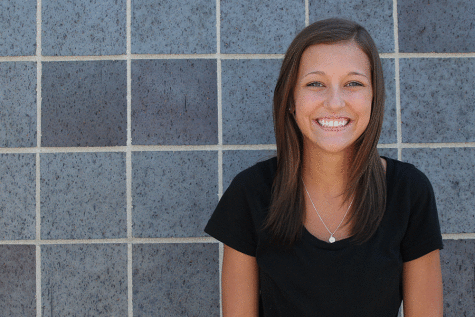
Senior Jena Smith is a Mill Valley News editor-in-chief and is on the JagWire newspaper staff as a photographer and designer. She is involved in NHS, Club 121 and Student Ambassadors. Smith spends the majority of her time in the journalism room and at Kaw Prairie Community Church. She loves turtles, chocolate milk, traveling, naps and Jesus.



